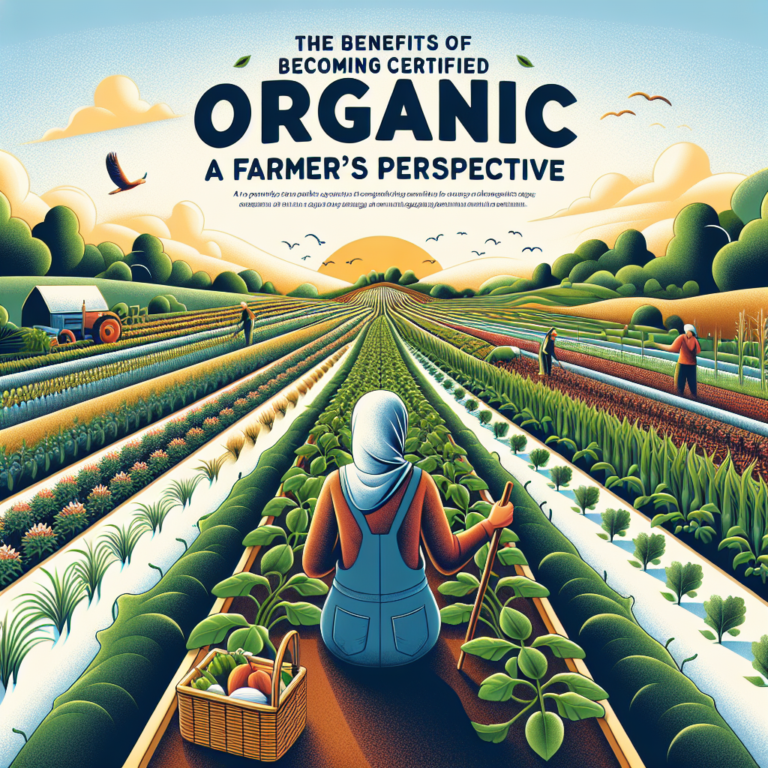Organic farming has become increasingly popular in recent years, with more and more consumers opting for organic produce over conventionally grown fruits and vegetables. But what exactly does it mean to be certified organic, and what are the benefits for farmers who make the switch?
Certified organic farming is a method of agriculture that relies on sustainable practices and natural inputs to produce high-quality crops without the use of synthetic pesticides, fertilizers, or genetically modified organisms. To become certified organic, farmers must adhere to strict guidelines set forth by the United States Department of Agriculture (USDA) or other certifying bodies.
One of the biggest benefits of becoming certified organic is the potential for increased market access and higher prices for organic products. As consumer demand for organic produce continues to grow, retailers and consumers are willing to pay a premium for organic fruits and vegetables. This can result in higher profits for farmers who make the switch to organic farming.
In addition to the financial benefits, organic farming also has numerous environmental advantages. Organic farming practices promote healthy soil by reducing soil erosion, improving soil fertility, and increasing water retention. Organic farmers also use practices such as crop rotation, cover cropping, and composting to help maintain a healthy ecosystem and reduce the use of harmful chemicals.
Furthermore, organic farming is better for the health of farmers and farmworkers. By eliminating the use of synthetic pesticides and fertilizers, organic farmers are not exposed to potentially harmful chemicals that can have long-term health effects. This can lead to a safer working environment and better overall health for those who work on the farm.
Another benefit of organic farming is the potential for improved soil health and long-term sustainability. By focusing on building healthy soils, organic farmers are able to produce crops that are more resilient to pests and diseases, reducing the need for chemical inputs. This can lead to higher yields and more consistent crop production over time.
Overall, the benefits of becoming certified organic far outweigh the challenges. While transitioning to organic farming may require an initial investment of time and resources, the long-term benefits for farmers, consumers, and the environment make it a worthwhile endeavor. By choosing to become certified organic, farmers can improve their bottom line, protect the environment, and provide consumers with high-quality, chemical-free produce.
